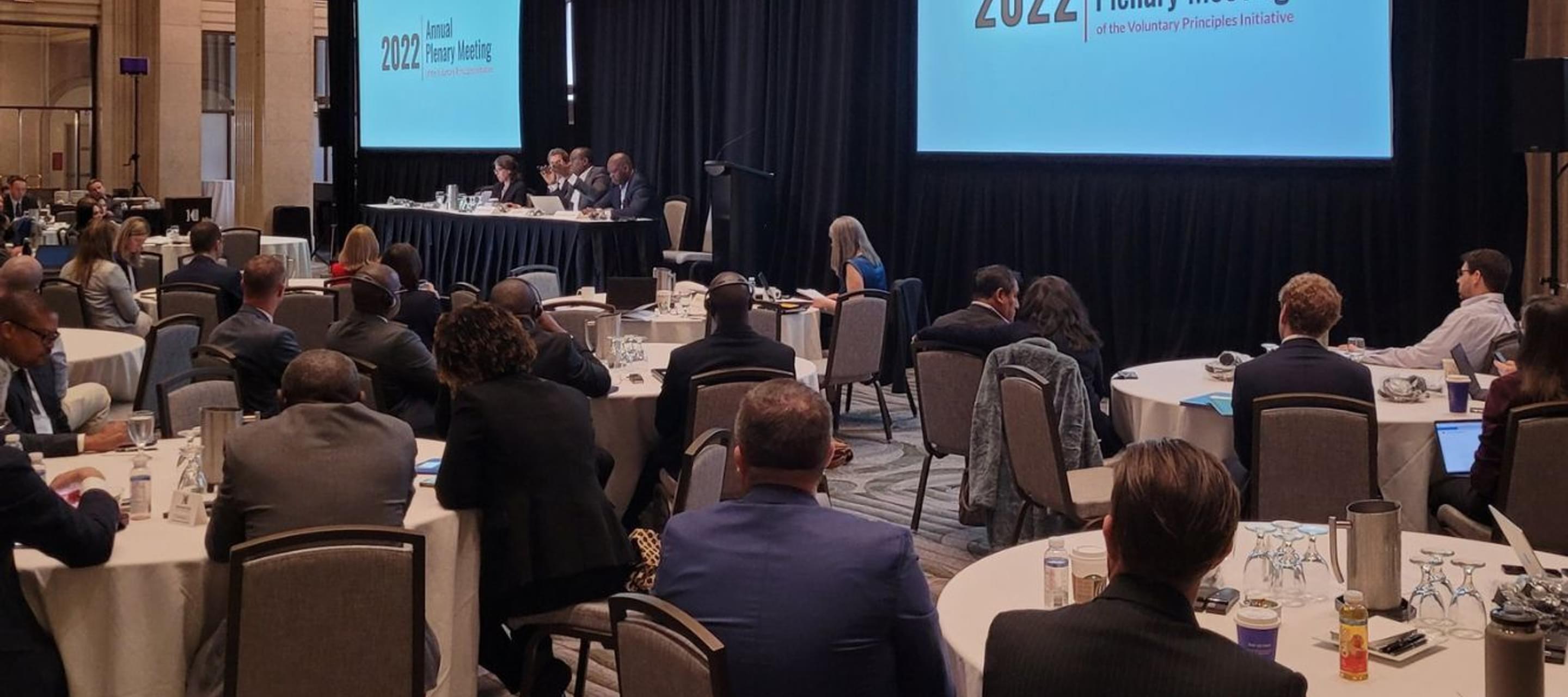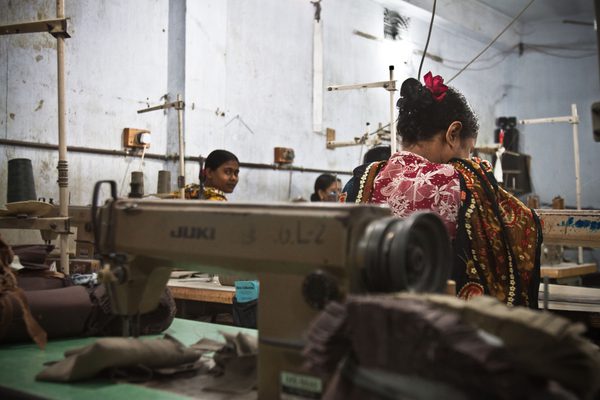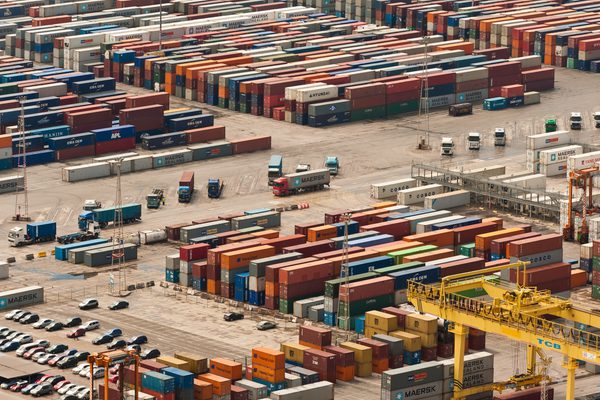Moving Beyond Voluntarism: Looking to the Future of the Voluntary Principles Initiative on Security and Human Rights
15 June 2022

This year’s annual meeting of the Voluntary Principles Initiative (VPI), (the multistakeholder platform set up in 2000 to help extractive industries ensure their security operations respect human rights), considered an issue that, perhaps surprisingly, still generates debate in responsible business circles: should “voluntary” commitments play an ongoing role in business and human rights policy and action?
During a panel session I moderated at the VPI meeting in Toronto, one corporate executive repeated earlier comments in our discussions: “Why do we keep speaking of “voluntary” principles?” As he put it, “Once we sign on and become participants, the standards become mandatory for us.”
No other participant questioned what was being said.
This was music to the ears of many civil society groups, which have, for years, advocated for firmer commitments from companies on human rights issues. I recalled the early days of the VPI,[1] when most companies emphasised the ‘voluntary’ nature of the initiative, and most participating NGOs focused on the solidity the word ‘principles’ implied, and sought measurement of performance, tools for implementation, and firmer enforcement. The few governments, which had helped set the initiative in motion seemed at the time to prefer the ambiguity, as it did not burden them with yet another responsibility.
NGOs like mandatory standards and rules that can be enforced. They want mechanisms that can hold the powerful to account for their impacts and remedies for victims that include corrective action.
Companies involved wanted to avoid litigation over ‘non-performance’, especially when there were no indicators for implementation or accepted mechanisms to enforce standards. NGOs wanted demonstrable commitments from companies, which in their view could only come about through regulatory or mandatory mechanisms, with an impartial body overseeing conduct and measuring performance. Amnesty International (where I worked at that time) took the view that we would “welcome the principles and support the process,” which allowed us room to critique the VPI process and principles when necessary.
Supporting the process and welcoming the principles, a position which most NGOs shared to a degree, wasn’t pedantic. NGOs like mandatory standards and rules that can be enforced. They want mechanisms that can hold the powerful to account for their impacts and remedies for victims that include corrective action. Many civil society organisations remain uncertain about the effectiveness of initiatives like the VPI. Amnesty eventually pulled out due to concerns over lack of measurable progress by companies involved, while some NGOs now participating (such as International Alert and Search for Common Ground) are more committed to engagement with companies in on-the-ground activities as a way to build peace in conflict-riven regions. Unquestionably, such initiatives need flame-keepers (who might name and shame, and Human Rights Watch and Pax are memebers) and implementors, and it isn’t necessary for one organisation to do both.
The VPI preceded the UNGPs by 12 years, and the UNGPs are more than a decade old. The signing of an instrument like VPI may be considered voluntary; the responsibility to respect is not.
Today’s VPI membership includes 10 governments, 28 companies (including five which are ‘engaged’ with the process), and 12 NGOs (including two which are ‘engaged’), as well as nine observers (including IHRB). We are engaged with the process as observers because we see it as offering value through its framework to safeguard rights. We also monitor progress and we work with our partner organisations in two countries (Myanmar and Colombia) to advance dialogue and action in those countries.
In any case, with the UN Guiding Principles on Business and Human Rights clearly stating that companies have the responsibility to respect human rights, the debate is moot. The VPI preceded the UNGPs by 12 years, and the UNGPs are more than a decade old. The signing of an instrument like VPI may be considered voluntary; the responsibility to respect is not. To be sure, the executive who spoke in Toronto was not the first person to say that for his organisation, the VPs are, in effect, mandatory. The VPI has acquired normative significance in the performance standards of the International Finance Corp and mentioned at the Organisation for Economic Cooperation and Development, as part of its guidelines.
The challenge then, as now, is how to ensure effective implementation, and how to convince stakeholders that companies involved in initiatives like the VPI are implementing their commitments consistent with international standards including the UNGPs. NGOs have long argued that more robust reporting is critical. This makes sense, since change is possible only if comparing performance with what happened earlier, and that requires measurement.
But report what? What is to be measured? Is it The number of incidents? The number of times security forces use force? The number of security personnel trained? The number of meetings with security or government officials to discuss human rights? The number of NGOs consulted?
The VPI, like other industry focused efforts, now faces bigger challenges. The multistakeholder model itself must address significant skepticism and criticism the model has faced, and platforms to manage risks linked to specific commodities.
Reporting has limitations. As the saying goes, “Not everything that can be measured matters, and not everything that matters can be measured.” Outputs are easier to measure than outcomes. Sometimes, a drop in adverse incidents is not because of what the company has done, but because of external factors (such as peace talks between rebel groups and government forces). A reduction in complaints may not mean the situation has improved, but could suggest the affected community no longer trusts existing mechanisms or adjudicating authorities. And it is impossible to measure what does not take place. For example, if the number of instances implicating security forces in sexual violence against women in a community has fallen, is it because security personnel are better trained and respect women, or because women have given up stepping out in public due to fears of guards (or have no faith in reporting violations)?
Such examples highlight the need for a better understanding of the environment in which companies operate, and taking effective steps as well to protect those who might oppose a company’s activities, provided they do so non-violently. Towards that end, it was good to see the VPI plenary discuss the development of a framework for companies to support the work of human rights defenders, and a toolkit that would enable companies to analyse conflict.
The VPI, like other industry focused efforts, now faces bigger challenges. The multistakeholder model itself must address significant skepticism and criticism the model has faced, and platforms to manage risks linked to specific commodities – sugar, coal, jewelry, palm oil – must find ways to demonstrate faster progress in improving the lives of workers snd communities across complex supply chains. Extractive industries in particular need to see their involvement in multistakholder initiatives as opportunities to make stronger connections between human rights and the climate crisis, and as such, have a role to play in conversations about Just Transitions.
Human rights groups and civil society organisations will scrutinize other industries as well, and the VPI should see as part of its role sharing lessons of how progress can be made, and where challenges remain.
Many oil and mining companies have expressed their commitment to “Net Zero,” and are working towards reducing their emissions, which would fundamentally alter the way they do business. Other companies, which appear 'clean', because they are not extracting fossil fuels, will face similar challenges on issues such as:
- acquiring land from communities which may not wish to move;
- operating in environments with long-running hostilities between communities and the government and
- seeking free prior informed consent from affected communities among others.
Many companies mining cobalt, lithium, and other rare earths are not explicitly part of the VPI or other relevant multistakeholder coalitions. Similarly, large infrastructure projects and new “green” cities must interface responsibly with local communities, and today face many of the same issues that once pitted oil and mining companies against communities in Nigeria, Colombia, Indonesia, and elsewhere, which led to the creation of the VPI.
The central issue of relations between communities and security forces is not unique to the extractive sector. Human rights groups and civil society organisations will scrutinize other industries as well, and the VPI should see as part of its role sharing lessons of how progress can be made, and where challenges remain.
The VPI is now undertaking a review of its strategic direction and that is the right thing to do. With the question being no longer about voluntarism, but also because of more demands on companies to conduct due diligence, requirements from stock markets for clearer reporting of business practices, and social and consumer expectations that companies act better, it is now time to think outside the box: explore new sectors where standards and processes developed over the past two decades can be applied, and how to broaden the appeal and reach of such efforts, so that this and other initiatives of its kinds do not remain clubs of those who are already committed to human rights due diligence. There is an opportunity now to strengthen outreach to companies from countries which have largely still not been part of suchconversations, as well as to industries facing similar challenges.
That’s a worthy challenge for the VPI for the next decade. What brought companies, NGOs, and governments around the table was not the nature of the business, but the way the assets were being protected, and the safeguards security forces needed to put in place to prevent abuse. That hasn’t changed, and it must remain the central mission in the time ahead.
[1] Disclosure: in 1999, I represented Amnesty International in the drafting of the VPs, including suggesting textual changes that were adopted by consensus. At Amnesty, we used the VPs as a standard by which to evaluate the performance of security forces in the Niger Delta in reports I co-wrote in 2003, 2004, and 2005. Later, at International Alert, I undertook conflict impact analysis at two sites in Colombia, between 2006 and 2008, where extractive industries faced security challenges from left-wing rebels and right-wing armed groups. Until 2009, I was also on various internal committees of the VPI. IHRB is an Observer of the VPI, encouraging its implementation in Myanmar through our sister organization Myanmar Centre for Responsible Business (MCRB), and in Colombia, through Centro Regional de Empresas y Emprendimientos Responsables (CREER). I attended the Plenary in Canada in May 2022 representing IHRB.




